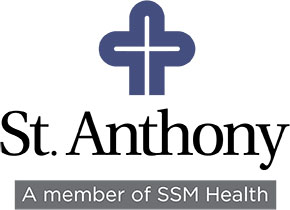Radiofrequency Ablation System Reduces Risk of Barrett’s Esophagus Progressing to Esophageal Cancer
Over 12.5 million people in the U.S. have Barrett’s esophagus, many of whom are not even diagnosed. Barrett’s esophagus occurs when cells in the lower esophagus are affected by chronic exposure to acid. Because of its strong association with esophageal cancer, Barrett’s esophagus is considered a pre-cancerous disease.
To reduce the risk of Barrett’s Esophagus progressing to Esophageal Cancer, St. Anthony Hospital is now offering the Barrx™ radiofrequency ablation system, a treatment that removes esophageal tissues affected by Barrett’s esophagus, a pre-cancerous disease (dysplastic Barrett’s esophagus).
“Barrx technology offers an efficient and safe way to treat complicated Barrett’s esophagus, a condition that is common and results from chronic heartburn or Gastroesophageal Reflux Disease (GERD). Barrx radiofrequency ablation is a minimally invasive technique performed by a Gastroenterologist during an upper endoscopy, which minimizes a patient’s risk of developing esophageal cancer,” said Pooja Singhal, M.D., board certified gastroenterologist at St. Anthony Hospital.
The Barrx™ radiofrequency ablation system uses heat to remove tissue affected by Barrett’s esophagus. In a clinical study, the Barrx™ radiofrequency ablation system was found to reduce the risk of Barrett’s esophagus progressing to esophageal cancer by over 90 percent.
If you have undergone treatment or observation for GERD, chronic heartburn or other acid reflux-related symptoms, you may be at risk of developing Barrett’s esophagus. Early detection of Barrett’s esophagus may reduce the risk of this disease progressing to esophageal cancer. To learn more about this procedure or to make an appointment with St. Anthony Physicians Gastroenterology, please call













